VOL- 3 ; ISSUE- 2, PUNE RESEARCH - An International Journal in English (ISSN 2454-3454) JIF 2.14
3.2 ENGLISH
Area of Article : ALL
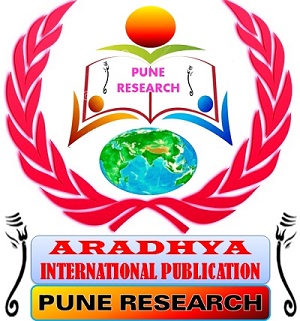
VOL- 3 ; ISSUE- 2, PUNE RESEARCH - An International Journal in English (ISSN 2454-3454) JIF 2.14
3.2 ENGLISH

VOL- 3 ; ISSUE- 2, PUNE RESEARCH - An International Journal in English (ISSN 2454-3454) JIF 2.14
3.2.1 ENGLISH
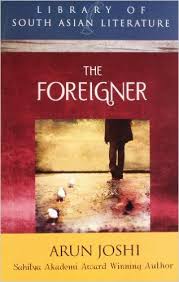
The paper deals with Existentialism. Existentialism is a philosophical outlook that stresses the importance of free will, freedom of choice, and personal responsibility. This perspective emphasizes the unique experiences of each individual and the responsibility of each person for their choices and what they make of themselves. Perhaps the most prominent theme in existentialist writing is that of choice. Because one is free to choose one’s own path, existentialists have argued, that one must accept the risk and responsibility of following one’s commitments.
The paper stresses the fact that Joshi visualizes the inner crisis of the modern man and finds and gets convinced that the most besetting problems that man faces today are the problems of the self, like alienation, identity crisis, sense of void and existential dilemma. The Foreigner relates how Sindi Oberoi, an immigrant Indian, suffers in the course of his search for meaning and purpose of his life.
VOL- 3 ; ISSUE- 2, PUNE RESEARCH - An International Journal in English (ISSN 2454-3454) JIF 2.14
3.2.2 ENGLISH
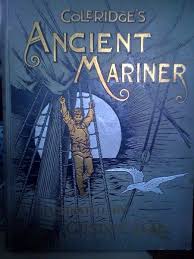
Samuel Taylor Coleridge was an English Poet of the Romantic Movement, best known for his allegorical Sea-faring poem, “The Rime of the Ancient Mariner”. In this poem, Coleridge uses symbolic language to express his own religious thoughts and deep religious truths to the readers. The poem describes the life of an Ancient Mariner, Who had committed a sin by killing the sea bird, Albatross, Which is considered to be a sign of good omen. The Albatross hung around the Mariner’s Neck as a curse for the sin which he had committed. It fell down from his neck, when he repent for his sin and pray for clemency. The voyage is a symbolic representation of the Mariner’s life, his path towards sin and his subsequent repentance. This present paper aims to explore the deep religious symbolisms in this poem, which reveals the universal message that Selfish Pride will lead us towards sin and Self Repentance will keep us away from sin.
Key
Words: Mariner, clemency, Self -
Repentance
VOL- 3 ; ISSUE- 2, PUNE RESEARCH - An International Journal in English (ISSN 2454-3454) JIF 2.14
3.2.3 ENGLISH
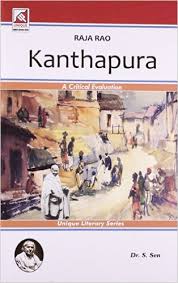
VOL- 3 ; ISSUE- 2, PUNE RESEARCH - An International Journal in English (ISSN 2454-3454) JIF 2.14
3.2.4 ENGLISH

Indian polity over the last decade have
taken a paradigm shift in the context of various issues related to governance.
The concept of good governance has its roots in ancient India. It was since
then the maxim of social welfare was conceptualized. People centric governance
and utmost welfare of the last man in the queue through equitable distribution
of nation’s wealth came to the fore during an era of Kautilya who was an
ancient economist and an adviser to the King Ashoka. As we transcended an
ancient era, plethora of issues are coming to the surface and renewed demand is
cropping up from all the sections of the society regarding bringing back the
lost glory of good governance. This paper succinctly elucidates some of the
cornerstones of good governance so as to create a justified world order.
VOL- 3 ; ISSUE- 2, PUNE RESEARCH - An International Journal in English (ISSN 2454-3454) JIF 2.14
2.4.5 ENGLISH
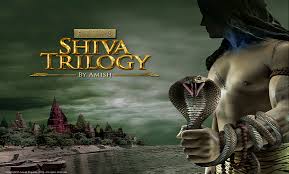
Pre-Aryan history of India provides insight of the highly civilized race in India. An overlook of Indian civilization can viewed through the Hindu scriptures such as Vedas, Upanishads,Smritis, Epics, Puranas and other works. The scriptures represent Aryans as superior while Non Aryans as Dada , Dasyu , fifth Vasna or Shudras, Ati- Shudras and untouchables. One section of Hindu society -Shudra has been treated persecuted. Among Shudras, 'Nirvasita' were treated even inhumanly. This chapter was pushed at the margins of Hindu society and they have been identified differentl in different ages with the offensive terms. They were mainly classified as untouchables. It is believed that touching to them was polluting, even their shadows was polluting to the orthodox Hindus. In the modern times, marginal literature refers to the writings belonging to communities and classes living on the margins of the socio - political structures .The Immortals of Meluha, the debut work of the trilogy, provides a way to justify those who have been marginalized since ages. The fiction inculcated social conciseness and promotes a new sense of self esteem. The new dimension was given by Amish in his novels to representing the pain and worries of the oppressed people. In Shiva Trilogy, Amish creates sympathy and emphathy through different people impacted by in the novel such as Sati, Vikrama, Nagas and people with disabilities. This present research aims to explore the the social injustice in Meluhan society through the protagonist Shiva.
VOL- 3 ; ISSUE- 2, PUNE RESEARCH - An International Journal in English (ISSN 2454-3454) JIF 2.14
2.3.6 ENGLISH

Chimamanda Ngozi Adichie’s third novel Americanah mainly
focuses on the African immigrants and racial problems. Americanah is a
narrative of two Nigerian immigrants who love and lose each other in the mighty
flow of time and distance. This book speaks about the struggle to survive
within the background of identity crisis including racial discrimination, skin
colour, and hair politics. Americanah is perceived through the eyes of a
Nigerian and has attempted a revolutionary act of writing. The protagonist here
is trying to locate herself within the aura of closely knit, painful, and
tender relations, interlocking her with various contemporary social happenings.
Adichie employs migration as the window through which these issues are
projected. She is aware of how race and gender work alongside each other and
shape someone’s experience. By analyzing the different experiences of the
African immigrants the novel exposes how their immigrant status affects them
through gender, race, as well as economically and culturally.
VOL- 3 ; ISSUE- 2, PUNE RESEARCH - An International Journal in English (ISSN 2454-3454) JIF 2.14
2.3.7 ENGLISH

The concept of women being independent is not a new one
in the literary scene, but the domain it offers, that is where Chick lit
becomes different and successful. Here the characters are not at all perfect,
the situations are worse and there are always problems and confusions and
self-doubts. But despite these the protagonists find romance and they balance
both their personal and professional lives. Dysfunctional family, failed and
troubled romantic relationships, and career struggles all contribute to the
story of the Chick lit. Jane Austen’s novels are often mixed with this genre but
there is a great difference here. Here the heroines are not the model women. In
contrast, the Chick lit heroines are full of self-deprecation and confusions.
It is the very subversion of traditional romances. Austen repeatedly emphasises
the point that a woman can be happy and content only when she gets married to a
good guy. Chick lit subverts this very idea. This paper aims at celebrating
Bridget Jones of Bridge Jones’s Diary as the norm changing Chick lit heroine of
all times. Thanks to Bridget Jones’s Diary
Indian literature is also revelling in celebrating the imperfections of women,
thus giving birth to Indian Chick lit. As Pride and Prejudice is considered as
the definition of classic romance, Bridget Jones’s Diary is considered as the
classic definition of modern woman who succeeds despite her imperfections.
VOL- 3 ; ISSUE- 2, PUNE RESEARCH - An International Journal in English (ISSN 2454-3454) JIF 2.14
3.2.8 ENGLISH
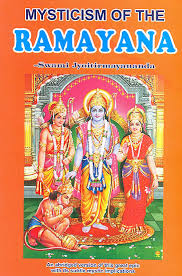
The great epic ‘The Ramayana’ says an intensive,
sensitive and deep moral that a soul’s prime aim is to mingle with ‘Paramathma’
(Kingdom of Almighty) in spite of all other ‘Karmas’ (Duty or Routine). The
utmost difficult and challenging duty of an individual is to control his / her
own thoughts or mind. Mere souls satisfy themselves with worldly pleasures
where as rich souls always trying, struggling to attain the ‘Holy Feet of God’
(Non-Birth stage). Rich souls want to get rid of this painful birth. In order
to explain these morals through stories; saints and sages have written Epics and
‘Puranas ’(Lengthy stories). Among them ‘The Ramayana’ possesses an important
role to play. The mighty characters in ‘The Ramayana’ express that Seetha (Mind
or soul) united with Rama (Almighty) over coming many trials and troubles.
Ravana symbolizes great sins like lust, treachery, conspiracy etc. This
particular article deals with the exceptional characters like Ravana,
Indirajith, Mandodhari, Soorpanaga, Oormila and Laxman with excellent qualities
but with extreme extirpation, which lead to their last breath or pathetic end.
‘The Ramayana’, ‘The Mahabarata’ etc. are lively characters for ever as long as
the universe exists.
VOL- 3 ; ISSUE- 2, PUNE RESEARCH - An International Journal in English (ISSN 2454-3454) JIF 2.14
3.2.9 ENGLISH
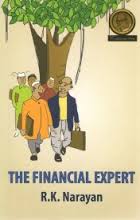
Rasipuram Krishnaswamy Iyer Narayanswami was born on the 10th October, 1906. He was born in a Brahmin family who were the worshippers of Siva and Vishnu. He is well-known Indian English novelist. His novels grapple with contemporary themes. His The Financial Expert is a novel which gives a moral message though a myth of goddess Saraswati and goddess Lakshmi. It is an India saying that one has worship goddess Saraswati to please goddess Lakshmi. Margayya is an adopted name means one who shows path. Margayya, a vendor helps poor peasants in their financial needs. It is great job to help famers in applying for their loan. Actually, He is not a banker or moneylender. He earns money by giving financial advice in selling their forms, and guiding illiterate farmers how to get loan from the Central Cooperative land mortgage Bank in Malgudi. Later on he becomes greedy. He wants to keep his son Balu happy. He loves money. He earns wealth by evil ways for his son’s future. On the other hand his son is spoilt.
Keywords: Implications, Myth, Puran, Moral, passion, wealth,
parable Synonym, evil, good.
VOL- 3 ; ISSUE- 2, PUNE RESEARCH - An International Journal in English (ISSN 2454-3454) JIF 2.14
3.2.10 ENGLISH
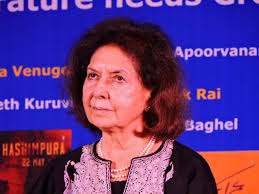
The function of literature is to catch the historical
reality of the time, the spirit of society, expression of individualism and
foreshadows of time. It represents the
seething frustrations of the age and records the rebellious spirit. Every age has its own culture and in it
resides the social ethos of the community.
Any culture is the composite whole of various tendencies accepted and
practiced by the people in a particular society. The commonality does not
question it but literary man does it with all his thinking, imagination and new
ferment of ideas.
VOL- 3 ; ISSUE- 2, PUNE RESEARCH - An International Journal in English (ISSN 2454-3454) JIF 2.14
3.2.11 ENGLISH
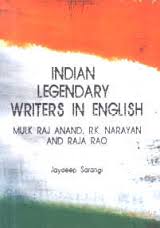
The most significant event in the history of Indian English Fiction in the nine-teen thirties was the appearance on the scene, of it’s major trio. Mulk Raj Anand, R. K. Narayan and Raja Rao. Whose first novels were published in 1935, 1938 & 1938 R. K. Narayan writing we saw the picture of Indian middle class society and their problem's, Narayan is able to transform a particular limited region into a microcosm of Indian and Indian Life, Malgudi is the only character in his work's which changes and grows.
Mulk Raj Anand is famous chiefly as a writer of Sciological novels. He deals with some of the most glairing social evils which include untouchablity and the exploitation of labour. Another bright star in the literary. Firmampnt of India is Raja Rao. His first novel Kanthpura published in 1938. This novel describes the impact of the ideas and the philosophy of Mahatma Gandhi.
VOL- 3 ; ISSUE- 2, PUNE RESEARCH - An International Journal in English (ISSN 2454-3454) JIF 2.14
3.2.12 ENGLISH
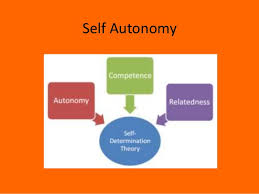
VOL- 3 ; ISSUE- 2, PUNE RESEARCH - An International Journal in English (ISSN 2454-3454) JIF 2.14
3.2.13 ENGLISH

Culture is complementary to language. Language is out
come of culture. It affects thought process and creates a distinctive system of
beliefs pertaining and peculiar to that culture. Cultural identity is
associated with linguistic distinctiveness. The shared cultural knowledge and
the shared non-cultural knowledge (recipe, geography and economics) in thought
process and thought content produce the language. Culture plays an important
role in developing and shaping the language. As Goodenough explains the
relation of language and culture, “That a society’s language is an aspect of
its culture … the relation of language to culture is that part to whole”.
[Hudson, 83] Language and culture together give an identity to individual and
interlinking of three aspects (language, culture and identity) make the
peculiar identity of that particular society in this world.
VOL- 3 ; ISSUE- 2, PUNE RESEARCH - An International Journal in English (ISSN 2454-3454) JIF 2.14
3.2.14 ENGLISH
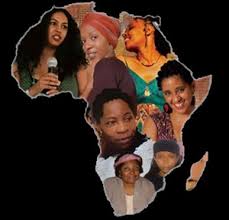
Literature of the erstwhile colonies written in English
has come to occupy a very important position in the arena of world literature
today. This illustrates the fact that
the experience of being colonized by the
British left an indelible mark on the consciousness of the colonized people,
which they expressed, most often, in the English language. The impact of the colonial encounter has its
positive aspects too, the outstanding literature written in English by
non-natives users of English being one of them.
VOL- 3 ; ISSUE- 2, PUNE RESEARCH - An International Journal in English (ISSN 2454-3454) JIF 2.14
3.2.15 ENGLISH
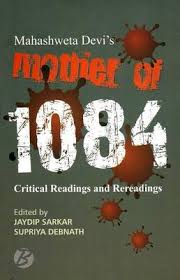
Mahasweta Devi is one of our foremost cabalistic personalities, an abounding and acutely political agreeable activist. Self-assertion is the act of ambitious acceptance for oneself or of insisting aloft one's rights, claims, etc. Sujata, in MOTHER OF 1084, is about apolitical. Yet as she anteroom arise an annual of the afterlife of her son asleep in the 70s, she too finds the complete agreeable adjustment cadaverous, and as she takes a afterpiece accessory at the society, she finds no affronted for his death. It is an illegitimacy that Mahasweta locates beforehand throughout society, in the administration, in the cultural- bookish establishment, in politics, in the achievement of an able alienated bounden of killers able to serve the interests of any organized political force anywhere amidst the extremes of the adapted and those of the left. In an anecdotal actualization that allows accompanying for an assimilation of the illegitimacy advancing at all these levels as added than a ambient and a assimilation on an individual’s complete realization, Mahasweta begins with the acceptance of the abstemiousness of a family, takes Sujata out of its borders to let her accommodated and coat with others lying beyond, abandoned to accompany her ashamed to the ancestors at the end, and afresh let her achieve a last, awful ability to access its norms and acclimatize to it, afore she collapses.
VOL- 3 ; ISSUE- 2, PUNE RESEARCH - An International Journal in English (ISSN 2454-3454) JIF 2.14
3.2.16 ENGLISH

Developing the ability to understand spoken and written
English and make them to speak and write in English is the main objectives of
teaching English as a second language in India.
As the teachers differ in the opinion of using mother tongue to teach
the second language. English language
teaching in India is having the multiple facets according to the teacher’s
views. Hence, this study analyses the
objectives and problems of teaching English as a second language.
Key words: English Language Teaching, Second language learning
VOL- 3 ; ISSUE- 2, PUNE RESEARCH - An International Journal in English (ISSN 2454-3454) JIF 2.14
3.2.17 ENGLISH
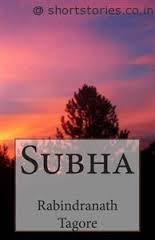
Tagore's heroines promulgate the treatment of women and
the truth about their position in the society. This paper aims to depict one
such real time character who in spite of being born mute, overcomes all
patriarchal views of the male chauvinistic society that existed during Tagore's
days. The protagonist Subha achieves to break through these conservative
shackles of the society by establishing a kinship with the elements of nature.
It also discusses how Tagore synthesizes the sounds of nature with the emotions
of the verbally challenged Protagonist of the short story Subha-who takes
refuge at the heart of nature from which she derived all consolation because of
the lack of acceptance from her own family.
VOL- 3 ; ISSUE- 2, PUNE RESEARCH - An International Journal in English (ISSN 2454-3454) JIF 2.14
3.2.18 ENGLISH
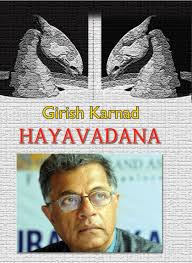
Drama is one of the most important ancient genre in
literature. It has written for various purpose; reading and enacting on the
stage. There are many playwright in India who have contributed to the genre,
drama. Girish Karnad is a famous Indian playwright. He has the talent of
changing a mythological tale into a fine drama. In Hayavadana, he has used
mythology for a better flow of his theme just as water flows in the river. This
article leisurely depicts how Girish Karnad has used mythological figures in his
play, Hayavadana.
Key Words: Mythology, leisurely, depicts
VOL- 3 ; ISSUE- 2, PUNE RESEARCH - An International Journal in English (ISSN 2454-3454) JIF 2.14
3.2.19 ENGLISH

Many people say that English is the hardest language to
learn if you were not born in a primary English speaking home. English is the
most common language spoken all over the globe. English is essential in writing
as well as speaking. It is very challenging to teach English in rural
classroom. Now a days it is Internet Communication Technology (ICT) It is
spread all over the global scenario. English speaking in India comes with a
different accent in each part of the country. The standardization can be got by
listening to Speeches and also teaching English innovatively in classrooms.
There are certain experiments carried on in a rural and tribal class through a
period of academic year. The new learners should follow this kind of approach.
Key-words – Speech mechanisms, oral communication, Internet & Communication Technology (ICT) drill method etc.
VOL- 3 ; ISSUE- 2, PUNE RESEARCH - An International Journal in English (ISSN 2454-3454) JIF 2.14
3.2.20 ENGLISH

Githa Hariharan, as a post-colonial novelist, reveal her deep insight into the plight of Indian
women, who are smothered in a male dominated society. In the present novel also, she highlights
their inferior position and subsequent degradation in the male dominated
society. The women in the novel try to
regain their balance by making certain existential choices . Sita, her mother’s
choice of her unhappy life in a muted silence, is another variety of
feminism. She dominates her husband
silently, prods him on for promotions and as Amba has her revenge in the
Mahabharata, she too destroys her poor husband.
Devi’s returning to India at her mother’s invitation and her marriage
with Mahesh which proves to be total disaster.
After realizing the great gap between both of them, she takes a bold
step in becoming the mistress of Gopal.
But his ego and self centredness again make her lose interest in him and
she is faced by the final dilemma: whether to drift away like a torn kite or to
return home to her mother. She makes the
second choice and proves herself to be a modern, conscious woman who refuses to
take the usual path of compromise with the male-dominated setup around her for
asserting her freedom. But her unusual
choice to go back to the mother for whom she does not have much love seems to
be a sign of confusion. Hariharan seems
to indicate here the modern woman’s confused condition through Devi’s and
Sita’s character.
VOL- 3 ; ISSUE- 2, PUNE RESEARCH - An International Journal in English (ISSN 2454-3454) JIF 2.14
3.2.21 ENGLISH
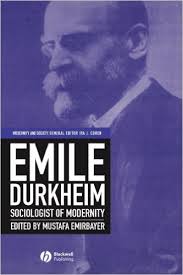
Emile Durkheim (1858-1917), an effective writer from
France, is considered one of the pioneers of Sociology. Besides being an
erudite scholar and deep thinker, he was a professor of Philosophy and
political liberalist. Herbert Spencer acknowledged August Comte as his master
but Durkheim didn’t. It is important to state here Durkheim was deeply influenced
by Comet’s theory of positivism. He was an educationist of higher esteem during
his time. The most important area of his research/interest was moral education.
Durkheim remained agnostic throughout his life. But he was from the core of his
heart a staunch moralist. He was sad and unhappy during his last days of his
life for he could not tolerate the moral degeneration of the French
society. It was Durkheim who made
Sociology as an empirical science. He was the founder of a journal called Anne
Sociologique, which is still regarded as one of the leading journals of
Sociological thought. In 1893, he
published his French doctoral thesis The Division of Labour in Society. The
Rules of Sociological Method was published in 1895. His most influential book suicide
came in 1897. But it was with the publication of The Elementary Forms of
Religious Life (1912) Durkheim became famous throughout world. He labeled
Marxism as ‘disputable and out of date hypothesis.’ Unlike Marx, he didn’t see
the proletariat as the salvation of society. He was greatly opposed to
violence/agitation which Marx preached to the ‘Have not’s.’